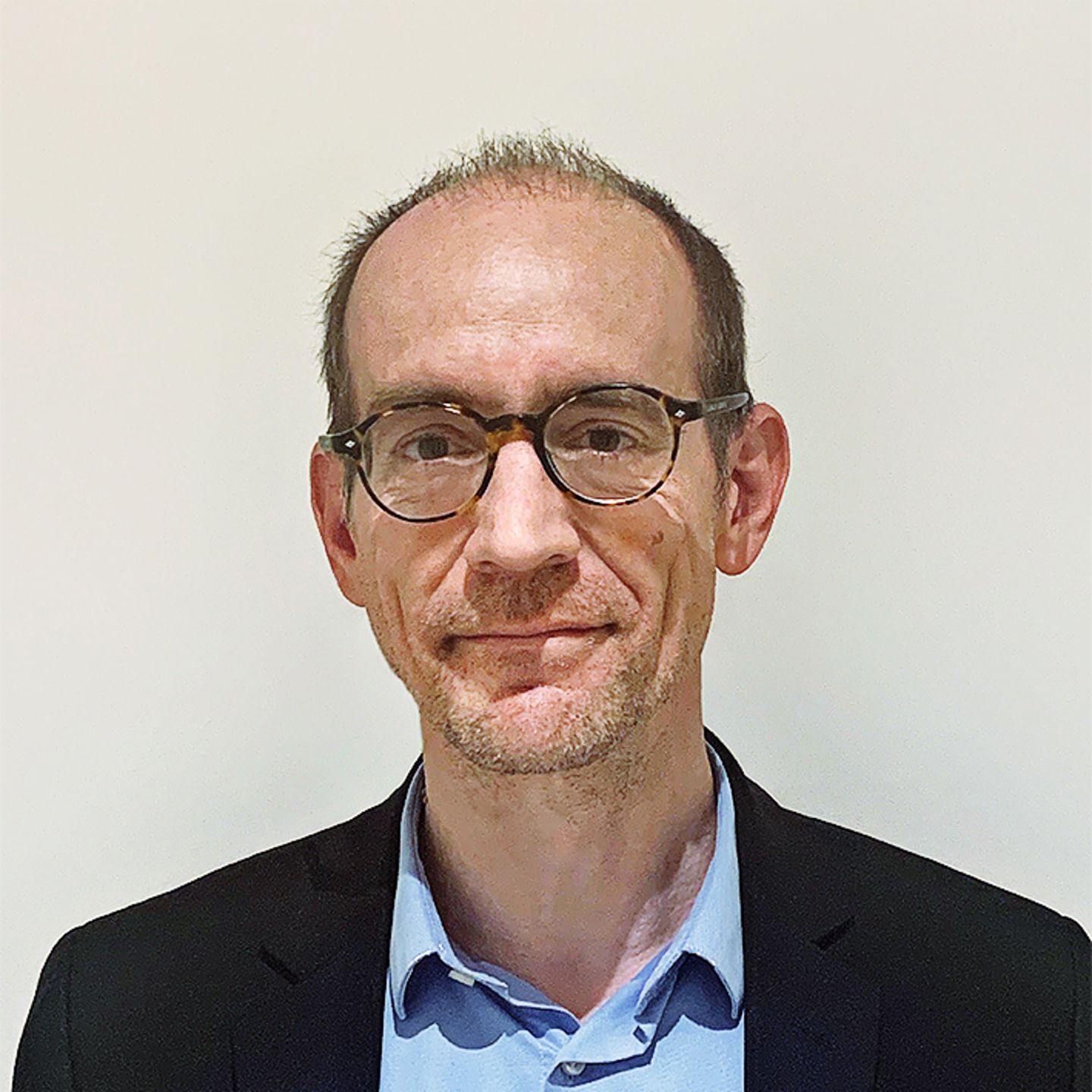Real estate secured receivables business is booming.
The business in real estate secured debt portfolios is growing constantly. EOS is also increasingly getting involved in this segment as an investor, especially at its national subsidiaries in France and in Bosnia and Herzegovina. One of their most important competitive advantages in this context is the good name of the EOS Group.
- More and more banks are selling their distressed loans to reduce their NPL rate.
- EOS in France and in Bosnia and Herzegovina have steadily expanded their business in real estate secured debt packages in recent years.
- The consequences of the COVID-19 crisis could further fuel market growth.
We have to admit that Petar Mrkonjić’s dream property does seem to have a few flaws. The office and residential complex in a much sought-after location in the western center of the Bosnian capital Sarajevo is just a shell with unplastered walls. But flaws like this are part of Petar’s daily business. In his capacity as Managing Director of EOS in Bosnia and Herzegovina he is responsible for buying non-performing loans (NPLs) secured by real estate, like this building complex in the city center of Sarajevo. And this business is doing better and better.
The market for secured NPLs is growing
Between 2015 and 2020 alone, the proportion of NPLs in the loan portfolio of all banks in the eurozone fell from around 7.5 to less than 3 percent, although the total volume of all loans increased. The sale of bad loans is an increasingly popular tool used by banks to reduce their NPL rates. And an increasing proportion of these sales relate to loans secured by real estate, says Jan Ottenbreit, Director NPL Transactions at EOS: “The market is growing continually and EOS with it.”
The reason for this is the increasing pressure on banks to sell their NPLs. “This is a delayed consequence of the 2008 financial crisis,” says Jan. The European Banking Authority recommends that non-performing loans should not account for more than five percent of the total value of a bank’s outstanding loans. Many non-EU countries are also following these guidelines meanwhile, especially in Eastern Europe. Bosnia and Herzegovina is one of them. In 2017, the country created a legislative framework to regulate the trade in secured NPLs. “These kinds of transactions were also possible before, but the banks here were very reticent,” says Petar, the Managing Director of the local EOS branch. This changed radically with the advent of the new legal framework: in 2020 the team led by Petar began to enter the secured NPL market by purchasing two portfolios with a receivables volume of €19 million.

Many banks are still waiting to see how the situation develops with borrowers.
EOS enjoys a good reputation as an investor
The team pulled off this deal despite challenging circumstances. Because Bosnia and Herzegovina are two legal entities: the Federation of Bosnia and Herzegovina, and the Republic of Srpska. “Most companies operating throughout Bosnia therefore consist of two firms independent of one another with two head offices, one in Sarajevo and one in Banja Luka,” says Petar. “To all intents and purposes, we have two markets in one.”
This results in differences in the legal details. For example, receivables purchasers in the Federation of Bosnia and Herzegovina have to prove that they have a certain level of equity, while in the Republic of Srpska it suffices if the buyer has access to external sources of capital. Another difference is that since January 2021, sales of receivables have had to be announced in newspaper advertisements in the Federation, but not in the Republic.
In this complex market, the experience and reputation of EOS were a great help, says Petar. “We had the legal knowledge and the head office in Hamburg provided us with the necessary financial and real estate expertise. Without their help we would not have managed to build up our team.”
Risks and expected returns vary enormously in NPL markets
The EOS reputation also benefits the team in France, which has the largest inventory and highest sales with secured debt portfolios of all the company’s national subsidiaries in Western Europe. EOS took its first steps in this area in France in the early 2000s. The business in secured deals has picked up significantly in the last five years. “During this time we have acquired an excellent reputation,” says David Thierry, Head of Litigation and Corporate Department at EOS in France, “and that’s why we are much in demand as a partner when it comes to buying secured receivables.”
The market in France is growing exponentially. Since 2015, David‘s team has acquired 20 portfolios from 13 different banks and financial institutions. Of these, more than 90 percent of the investments were made in 2018 and the following years alone. “This was also due to low interest rates and newly adopted laws that made it easier to purchase property,” says David. “We quickly identified and responded to this trend. Today, EOS is the number three in this segment in France, giving us a key position on the market.”
“In France, the real estate portfolios on offer are generally of high quality,” says Jan. “They include holiday homes on the Côte d’Azur, or even the occasional castle.” On the other hand, the purchase prices are higher, he adds: “This means less risk but also lower returns.” In Eastern Europe, by contrast, a lot of properties are in a poorer condition. “They even include properties with no access roads to them, half-finished hotels with no windows, or sometimes a house with a wall missing. But there are buyers in the region who prefer to invest less and repair or finish off the buildings themselves.”

After Italy, France has the second-largest volume of NPLs in the whole of Western Europe.
Strong growth anticipated after the COVID-19 crisis is over
That is why Petar is confident that the purchase of the building complex in Sarajevo will also pay off. Without the COVID-19 crisis, his team would probably have acquired as many as five to six portfolios, says Petar. “However, the market situation and the uncertainty delayed approvals of the sales by six to nine months.” David and his team are pleased that some French courts passed resolutions just before the first lockdown. He is confident that the market will grow enormously after the pandemic ends: “After Italy, France has the second-largest volume of NPLs in the whole of Western Europe.”
In Bosnia and Herzegovina, business is expected to take a similar course, says Petar. In the coming year he aims to increase his team from the current four to 10 to 15 people. This too is a consequence of the COVID-19 pandemic. “Many banks are still waiting to see how the situation develops with borrowers, but in six months’ time there will be a lot of portfolios coming onto the market.”
Please contact us for more information.
EOS in Germany
Daniel Schenk
Head of Corporate Communications & Marketing Germany
Steindamm 71
20099 Hamburg
Germany
Photo credits: Armin Durgut (2), Getty Images (2), EOS




